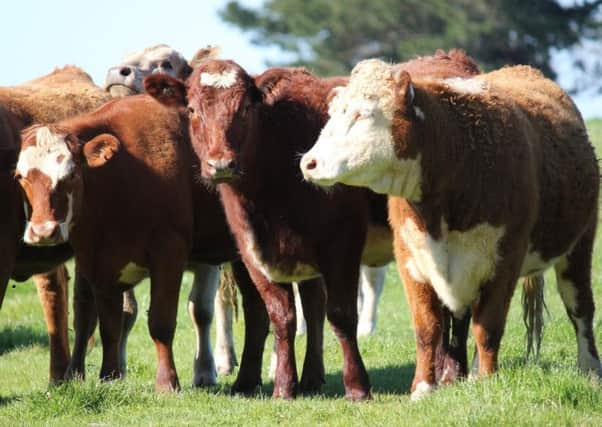'˜Livestock reductions to mitigate climate change would be a mistake'


A report by the Government’s advisory Committee on Climate Change recommends the number of sheep and cattle in the UK is reduced to cut greenhouse gases.
It said this would free up land for other uses, suggesting up to a tenth of all farmland could be used to plant trees to help store carbon.
Advertisement
Hide AdAdvertisement
Hide AdNFU president Minette Batters said the report “simply does not recognise the environmental benefits grass-fed beef and sheep production brings to the UK”.
It would be a “fundamental mistake” to have a farming system around an approach that mitigates greenhouse gases with disregard to the wider impact on the environment and the nation’s food supply, she said.
Will Terry, NFU’s livestock board chairman for Yorkshire and the North East who farms at Ravenscar near Scarborough, said: “In our region 43 per cent of the total farmed area is permanent pasture.
“This pasture is managed by the region’s grass-fed livestock – animals that also maintain the world-famous landscapes for which the region is famous and allow us to produce high quality food from otherwise unproductive land.”
Advertisement
Hide AdAdvertisement
Hide AdFuture changes, the Committee on Climate Change suggests, could involve ‘wet-farming’ on restored peat soils, growing crops such as blueberries, reeds and sphagnum and rearing water buffalo.
CLA North director Dorothy Fairburn, speaking at the Defining a future for Yorkshire farming event this week, suggested eating habits would not change if livestock numbers were cut and that other meat-producing countries, such as Brazil where there has been mass deforestation would simply end up importing more red meat.
